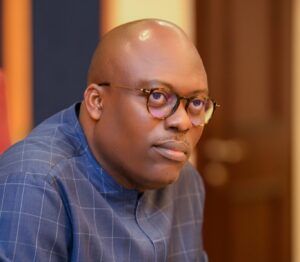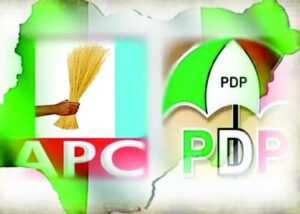June 12: Democracy Day, the need for good governance
In the mood of celebrating Nigeria’s Democracy, today marks fifth anniversary of the change of our dear country’s Democracy Day from the unpopular date, May 29 to the more relevant and appropriate date of June 12.
The kudos for the reversal goes to former President Muhammadu Buhari, the sequel to the nod of the National Assembly and the behest of democrats within and outside Nigeria.
He noted that late Moshood Kashimawo Abiola and other heroes sacrificed their lives to birth a new Nigeria.
Thus and against this background, as we today, on this public holiday, mark 24 years of unbroken democracy, let us not forget the essence of the June 12 struggle and the positive trappings of democracy itself. Such essence and trappings include: doing away with tribal, religious, cultural and age differences as well as the need to ensure life, more abundant for the long-suffering Nigerians who are yet to benefit in any meaningful way from the economic dividends of democracy.
The day, June 12, was one that brought everyone together to usher in a new Nigeria. And in the spirit of actually effecting change, the authorities at various levels of government must work on these factors.
A socio-political activist and critic, Chief Adesunbo Onitiri, on Saturday, vowed that the apostles of June 12 would not rest or waver until Nigerians enjoy maximum good governance in the country.
He made this pledge in Lagos while speaking on the upcoming anniversary of June 12 this year especially as it marks the beginning of a new democratic dispensation in Nigeria.
According to Onitiri, Nigerian democrats have a duty to ensure that the people fully enjoy dividends of democracy, good governance and as a matter of priority, ensure that martyrs in the fight for democracy are duly recognised and celebrated.
He implored Nigerians to cooperate with President Tinubu’s administration as he is prepared to give the citizens good governance.
Month of June, particularly its date of 29, has, in the past, wrought terrors on Nigeria and millions of her citizens when you look back at the Kano/Kaduna riots in the 1950s, 1960’s, the 1962 declaration of emergency rule in now-defunct Western Nigeria; the 1963 ‘Operation ‘Wet ‘e’ in the West and the start of the Nigeria Civil War in 1967.
Despite the turnout of June 12 election, the then military Head of State, General Ibrahim Babangida, decided to annul the results of the election. He justified the annulment on the grounds that it was necessary to save the nation. He alleged that political activities preceding the election were inimical to peace and stability in Nigeria.
Some people however believe that the military underrated Abiola’s popularity. It also did not envisage the level of crisis after the annulment of the election result.
The June 12 election and subsequent annulment marked the beginning of a decade’s long struggle to see the election result restored and democracy rehabilitated.
Also, the current President, Bola Ahmed Tinubu during his inaugural speech promised to uphold democracy and good governance as a bid to resurrect Nigerians ‘renewed hope.’
He revealed plans to govern Nigeria with fairness, equity and justice and not to rule over Nigerians.
According to Mr President, “The question we now ask ourselves is whether to remain faithful to the work inherent in building a better society or retreat into the shadows of our unmet potential.
“For me, there is but one answer; we are too great a nation and too grounded as a people to rob ourselves of our finest destiny.
“This nation’s journey has been shaped by the prayers of millions, and the collective sacrifices of us all.
“We have endured hardships that would have made other societies crumble.
“Yet, we have shouldered the heavy burden to arrive at this SUBLIME moment where the prospect of a better future merges with our improved capacity to create that future.”
Still, Nigeria’s economic outlook remains highly uncertain. Uncertainty around the continued subsidisation of premium motor spirit (PMS) mounting debt profile, manufacturing industries producing below installed capacity, high inflationary pressures, sky-rocketing interest rates, persists.
The modest projected recovery is being threatened by volatility in the oil sector, including an unexpected shock to oil prices, crude oil theft, illegal crude refining, insecurity, farmers-herders crisis, lop-sidedness in public service appointments, and weaknesses in the financial sector.
Meanwhile, the country continues to face massive developmental challenges, including the need to reduce the dependency on oil and diversify the economy, address insufficient infrastructure, build strong and effective institutions as well as address governance issues and public financial management systems.
But the present administration should endeavour to look into every aspect that will make Nigeria a better and great nation.
Above all, we must rekindle our faith in one united, indivisible Nigeria brought together by God for a divine purpose. The truth as it is often stated is that, we have no country other than Nigeria.
Therefore, it is important to reiterate here that, as we continue to bask in the ambience of June 12 Democracy Day; it should be noted that, thus far and till date, it is still ‘Their’ Democracy. Its gains are yet to be owned by the millions of Nigerians out there, who continue to languish in the backwaters of economic brutalisation and marginalisation.




